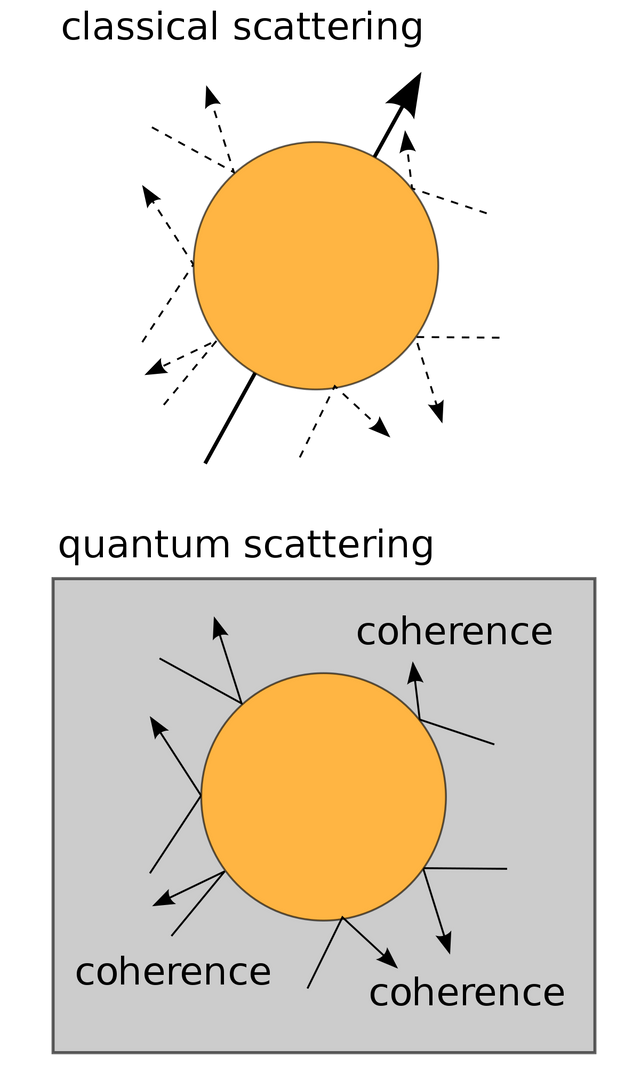My research on quantum physics,
.jpeg) source:https://images.app.goo.gl/LfL1oAgqcs3hR8cW9
source:https://images.app.goo.gl/LfL1oAgqcs3hR8cW9
In a kitchens water boils at 100oC, and its density changes dramatically, making a discontinuous jump from liquid to gas. However, if we turn up the pressure, the boiling point of water also increases, until a pressure of 221 atmospheres where it boils at 374oC. Here, something strange happens: the liquid and gas merge into a single phase. Above this "critical point," there is no longer a phase transition at all, and so by controlling its pressure water can be steered from liquid to gas without ever crossing one.
.jpeg)
source:https://images.app.goo.gl/kqWXVRpjvFzvAeBY9
Is there a quantum version of a water-like phase transition? "The current directions in quantum magnetism and spintronics require highly spin-anisotropic interactions to produce the physics of topological phases and protected qubits, but these interactions also favor discontinuous quantum phase transitions,"
Previous studies have focused on smooth, continuous phase transitions in quantum magnetic materials. Now, in a joint experimental and theoretical project by many Institute have studied a discontinuous phase transition to observe the first ever critical point in a quantum magnet, similar to that of water. The work is now published in Nature.
The scientists used a "quantum antiferromagnet," known in the field as SCBO (from its chemical composition: SrCu2(BO3)2). Quantum antiferromagn.

Source:https://images.app.goo.gl/U9RbktXZC3cWVVvZ6 The scientists also showed that, in this quantum regime where all engines are thermodynamically equivalent, it's possible to extract a quantum-thermodynamic signature that further confirms the presence of quantum effects. They did this by calculating an upper limit on the work output of a classical engine, so that any engine that surpasses this bound must be using a quantum effect—namely, quantum coherence—to generate the additional work. In this study, quantum coherence, which accounts for the wave-like properties of quantum particles, is shown to be critical for power generation at very fast engine cycles,
.jpeg) source:https://images.app.goo.gl/Ho4VcvtZ36BZgsKh7
source:https://images.app.goo.gl/Ho4VcvtZ36BZgsKh7
"To the best of my knowledge, this is the first time [that a difference between quantum and classical thermodynamics has been shown] in heat machines," Uzdin told Phys.org. "What has been surprising [in the past] is that the classical description has still held at the quantum level, as many authors have shown. The reasons are now understood, and in the face of this classicality, people have started to stray to other types of research, as it was believed that nothing quantum can pop up. Thus, it was very difficult to isolate a generic effect, not just a numerical simulation of a specific case, with a complementing theory that manages to avoid the classicality and demonstrate quantum effects in thermodynamic quantities, such as work and heat."
Okay
Good one
Good one
That's nice
Thanks bro
You made a nice research. Keep it up
Thanks bro i will
Awesome write up 👌
Thanks boss
Nice one
Interesting keep it up
It's interisting, but I know nothing about it.
Physics or fisis
🤓🤓🤓
That's great!!!